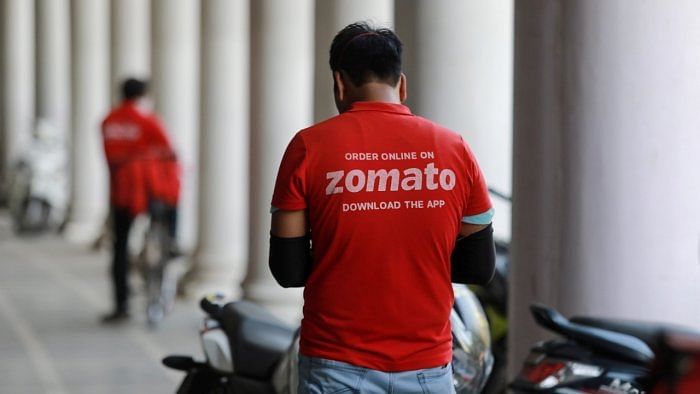
Food delivery company Zomato quietly introduced a new service, which allows customers to buy food from not just their city but also from a different city in another corner of India.
Branded Intercity Legends, the service currently offers limited options for order origins and destinations. A DH test of the service confirmed that the service was not available in Bengaluru as of the time of publishing.
"It’s an experimentation basis customer requests we had garnered in recent times," a Zomato spokesperson told inc42. "We are glad to be connecting Indians all over to the most legendary food, synonymous with the cities onboarded as a part of the Intercity Legends offering. It's too early for us to share details."
How does the service work?
A customer from a serviceable city can place an order from any participating city under Intercity Legends, according to the inc42 report. All food ordered under the pilot programme is packed by the restaurant and then refrigerated before being shipped via air or road to reach customers the next day. Some orders, however, might take longer than one day to reach customers, the report said.
The programme is still in the early stages of testing, which might explain its limited availability so far.
Can the service be profitable?
An intercity delivery can be very expensive, even for people feeling nostalgic about hometown food, with the overall costs for the dish and delivery up to double the price of ordering the dish within the same city, according to the report.
And despite a potentially large profit margin for Zomato, the company has to take air cargo prices into account, which are unlikely to be cheap. The company will also likely need to invest in a hub for cities with higher order volumes.
Another pilot project?
Zomato has developed a reputation for intiating pilot projects and then abandoning them without any notice. In September 2021, the company shut down its nutraceuticals division, which it began in 2020. A month earlier in August, it closed its UK and Singapore-based subsidiaries.
In November 2021, the company introduced a funding programme called Zomato Wings in an effort to connect restaurants with investors and help them with financing. It was then halted in April 2022 reportedly based on investor response.
In March this year, the company looked at a 10-minute food delivery programme, with co-founder Deepinder Goyal saying that the company would not pressure delivery partners to travel faster but would achieve the target by relying on a dense network of finishing stations. The plan was set aside in May after a pilot test in Gurgaon did not meet expectations.
Earlier this month, the Zomato-owned Blinkit announced that it would deliver printouts to customers' doorsteps in 10 minutes in a move aimed at parents and working professionals. The 10-minute delivery platform, acquired by Zomato for Rs 4,447 crore, said the facility was currently available in some areas.
Most recently, the company kicked off a pilot test of grocery delivery via Blinkit on its main platform in the Delhi-NCR area. Currently, those part of the pilot can order for a minimum order value of Rs 150 via Blinkit on Zomato's main app.
Once the Blinkit acquisition is closed, Zomato will experiment with cross-leveraging its customer base for both apps, Goyal said.
It remains to be seen whether Zomato's expectations will be met in the 10-minute delivery market, which seems to be nearing a dead end.
(With agency inputs)